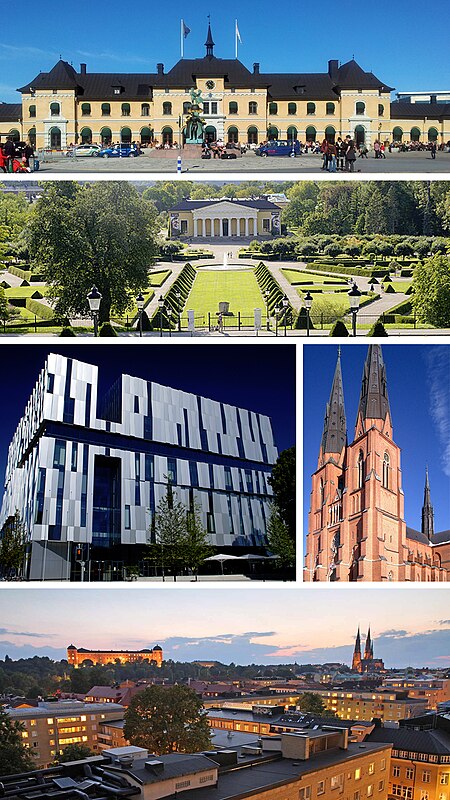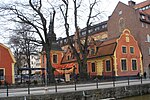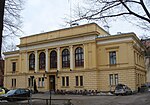Uppsala

Uppsala (Swedish: [ˈɵ̂pːˌsɑːla] (listen); archaically spelled Upsala) is the county seat of Uppsala County and the fourth-largest city in Sweden, after Stockholm, Gothenburg, and Malmö. It had 177,074 inhabitants in 2019.Located 71 km (44 mi) north of the capital Stockholm it is also the seat of Uppsala Municipality. Since 1164, Uppsala has been the ecclesiastical centre of Sweden, being the seat of the Archbishop of the Church of Sweden. Uppsala is home to Scandinavia's largest cathedral – Uppsala Cathedral, which was the frequent site of the coronation of the Swedish monarch until the late 19th century.Uppsala Castle, built by King Gustav Vasa, served as one of the royal residences of the Swedish monarchs, and was expanded several times over its history, making Uppsala the secondary capital of Sweden during its greatest extent. Today it serves as the residence of the Governor of Uppsala County. Founded in 1477, Uppsala University is the oldest centre of higher education in Scandinavia. Among the many scholars associated with the city are Anders Celsius, inventor of the centigrade temperature scale that now bears his name, and Carl Linnaeus, the father of taxonomy. Other Uppsala residents include filmmaker Ingmar Bergman, diplomat Dag Hammarskjöld, chemists Jöns Jacob Berzelius and Svante Arrhenius, actress Viveca Lindfors, and singer Malena Ernman.
Excerpt from the Wikipedia article Uppsala (License: CC BY-SA 3.0, Authors, Images).Uppsala
Kungsgatan, Uppsala Centrum
Geographical coordinates (GPS) Address Nearby Places Show on map
Geographical coordinates (GPS)
| Latitude | Longitude |
|---|---|
| N 59.858055555556 ° | E 17.644722222222 ° |
Address
Kungsgatan
Kungsgatan
751 40 Uppsala, Centrum
Sweden
Open on Google Maps










